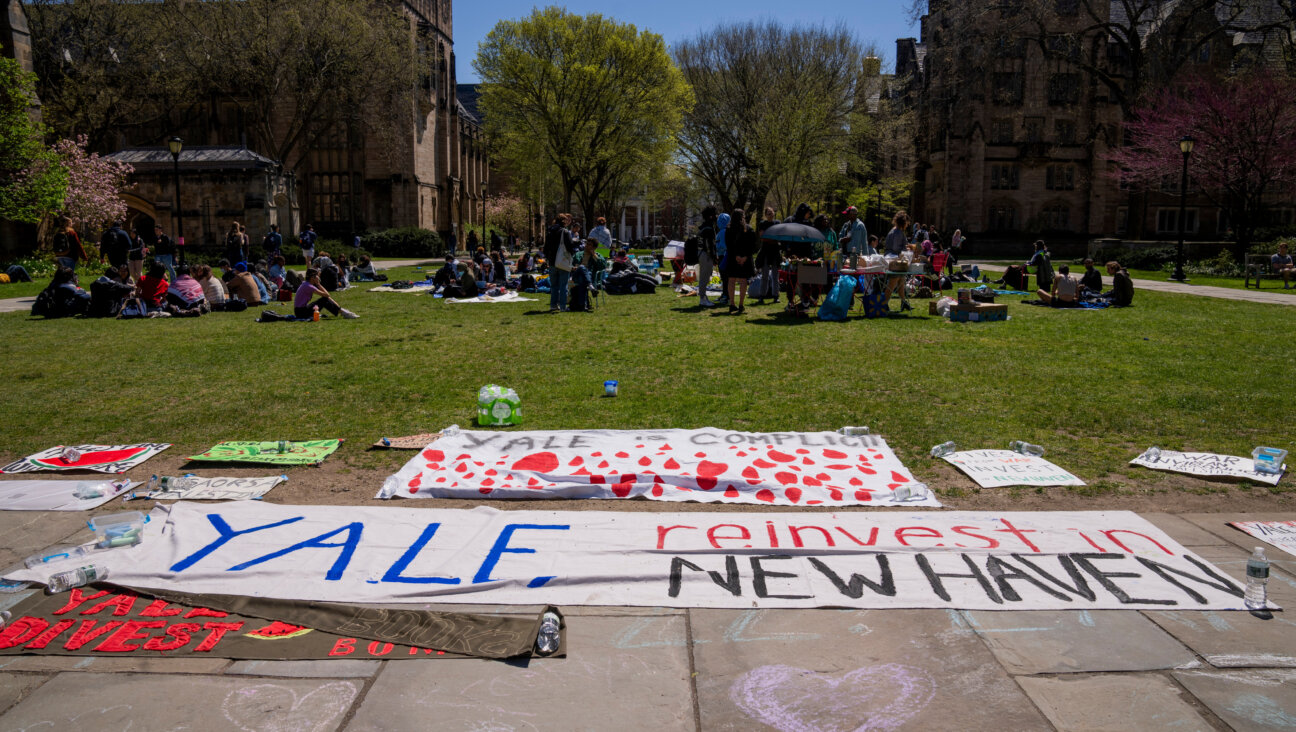Why Hasids May Have a Decent Legal Point About Single-Sex Swimming in Brooklyn

The Jewish world has recently been abuzz over the latest clash between law and religion, revolving around — of all things — a public swimming pool in Brooklyn.
Waves have reached beyond the community; an editorial in The New York Times provoked Avital Chizhik-Goldschmidt to take up cudgels in an opinion piece for the New York Daily News.
At stake is the New York City Department of Parks & Recreation’s policy to allow “women’s only” hours at the pool in order to accommodate the religious modesty practices of the local Hasidic community. On the one hand, the New York City Commission on Human Rights has criticized the women’s-only policy as violating principles of equality because it both adopts a sex-based policy and provides extra hours to women that it does not provide for men.
On the other hand, various political and communal advocates have endorsed the program as a religious accommodation that affords some members of the local community access to the pool without sacrificing their religious principles. In cases like this, how should the government navigate the competing legal principles of equal treatment and religious accommodation?
One way to think about the tension is to begin with principles of equality. The Equal Protection Clause of the Fourteenth Amendment prohibits government agencies from implementing practices that, by their terms, discriminate on the basis of sex — unless the policy is justified by an important government objective. This means that even if the Parks Department, in order to level the playing field, also announced men’s-only pool hours equivalent to the current women’s-only hours, it would still have to justify implementing a policy that, by its terms, discriminated on the basis of sex.
Though the Supreme Court has used more legal language, like “exceedingly persuasive justification,” really the case depends on whether accommodating the religious beliefs of the local Jewish women is “important.”
Courts have, to be sure, encountered a similar problem before, when, for example, addressing legal challenges to the existence of separate male and female sports teams at public schools. When addressing such cases, courts have generally approved of separate teams. They have held that while in principle separate-sex sports teams raise equal protection concerns, separate-sex sports teams advance an important government interest because they maximize the personal development of students by providing competition appropriate to their respective skill levels.
But pool accommodations simply don’t seem as important as providing access to school sports teams, which ensure personal development and growth in a host of ways.
As a result, a court might very well not see the women’s-only hours as justified; the interest at stake may simply not justify implementing a policy that distinguishes on the basis of sex. In the end, having access to a public swimming pool may not be big enough of a deal to outweigh sex-based discrimination.
The fact that having access to a public swimming pool is not the biggest deal also has another consequence: It prevents advocates from dismissing equality concerns by arguing that principles of religious liberty require the Parks Department to provide women’s-only hours. In New York, courts determine whether to grant a religious exception to a law by balancing the burden the law places on religious exercise against the purpose of the law. If the purpose of the law isn’t important enough to justify a burden on religion, then the government must accommodate the religious practice; by contrast, if the burden isn’t that big of a deal, then the government won’t have to accommodate the religious practice. Applied to the women’s only hours, access to a public swimming pool is unlikely to be considered particularly important; as a result, the Parks Department is presumably not required to provide women’s-only hours to accommodate the Hasidic community.
But it is one thing to say that the Parks Department isn’t required to accommodate the Hasidic women; it is quite another thing to say that the Parks Department shouldn’t accommodate them. Typically, government is permitted to accommodate religion, even where it isn’t required, so long as that accommodation doesn’t impose a significant burden on other citizens. And so, what’s good for the goose is good for the gander; if public access to a public pool isn’t a big enough deal to require a religious accommodation, then denying men access to the pool for a few hours a week also isn’t a big enough deal to prohibit the government from adopting women’s-only hours either.
In this way, but for the equality concerns raised by a rule that discriminates on the basis of sex, the women’s-only hours would fall under the broad category of “permissive accommodations”; indeed, there are droves of accommodations that federal and state governments afford religious citizens that fall into this category of not required but permitted — everything from laws that provide prisoners with kosher food to exceptions that allow children to drink a little wine as part of a religious ritual.
And so much of the legal issue at stake when balancing religion and equality boils down to the following: Is a permitted, but not required, accommodation a good enough reason to justify a rule that discriminates on the basis of sex? Different people — and different courts — are likely to provide different answers to the question. Maybe the right answer is that the idea of having rules that differentiate — and thereby discriminate — on the basis of sex is so offensive, so counter to our constitutional ethos, that we simply cannot tolerate such rules unless absolutely necessary.
But such a stance seems to take too stingy an approach to the relationship between broad principles of government regulation and religious toleration. When it comes to collectively shared government benefits — like a public pool — citizens and government ought to work together and find ways to craft rules and policies that account for the wide range of respective beliefs and identities of everyone.
And in cases where in many ways the stake are so low — when all that hangs in the balance is some additional pool time — permissive accommodations serve to promote communal solidarity through reciprocal recognition of each citizen’s personal commitments. Unlike recent clashes over contraception and same-sex marriage, when law and religion clash at the local public pool, citizens can yield to each other without losing too much. And in such cases, there seems to be good enough reasons to cabin a few hours a week to accommodate the religious practices of local religious group.
Michael A. Helfand is an associate professor at Pepperdine University School of Law and associate director of Pepperdine’s Diane and Guilford Glazer Institute for Jewish Studies. Follow him on Twitter, @mahelfand

I hope you appreciated this article. Before you go, I’d like to ask you to please support the Forward’s award-winning journalism this Passover.
In this age of misinformation, our work is needed like never before. We report on the news that matters most to American Jews, driven by truth, not ideology.
At a time when newsrooms are closing or cutting back, the Forward has removed its paywall. That means for the first time in our 126-year history, Forward journalism is free to everyone, everywhere. With an ongoing war, rising antisemitism, and a flood of disinformation that may affect the upcoming election, we believe that free and open access to Jewish journalism is imperative.
Readers like you make it all possible. Right now, we’re in the middle of our Passover Pledge Drive and we still need 300 people to step up and make a gift to sustain our trustworthy, independent journalism.
Make a gift of any size and become a Forward member today. You’ll support our mission to tell the American Jewish story fully and fairly.
— Rachel Fishman Feddersen, Publisher and CEO
Join our mission to tell the Jewish story fully and fairly.
Only 300 more gifts needed by April 30























